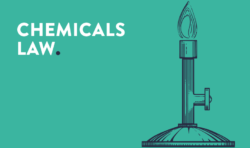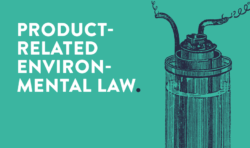Under the RoHS Directive, which has been transposed into national law in Germany by the ElektroStoffV, member states must ensure that electrical and electronic equipment placed on the market does not contain any hazardous substances listed in Annex II of the Directive above the maximum concentrations specified therein. A total of ten substances, including DEHP, BBP, DBP and DIBP as of 2019, are affected by the restrictions. The restrictions do not apply to certain exempted uses listed in Annexes III and IV RoHS. Based on three different requests made under Art. 5 para. 3 RoHS to add new exemptions to Annex IV, the latter has now been amended accordingly.
The following entries were added:
Delegierte Richtlinie (EU) 2021/1980
“45 Bis(2-ethylhexyl) phthalate (DEHP) in ion-selective electrodes applied in point of care analysis of ionic substances present in human body fluids and/or in dialysate fluids. Expires on 21 July 2028.“
Delegierte Richtlinie (EU) 2021/1979
“46 Bis(2-ethylhexyl) phthalate (DEHP) in plastic components in MRI detector coils. Expires on 1 January 2024.“
Delegierte Richtlinie (EU) 2021/1978
“47 Bis(2-ethylhexyl) phthalate (DEHP), butyl benzyl phthalate (BBP), dibutyl phthalate (DBP) and diisobutyl phthalate (DIBP) in spare parts recovered from and used for the repair or refurbishment of medical devices, including in vitro diagnostic medical devices, and their accessories, provided that the reuse takes place in auditable closed-loop business- to-business return systems and that each reuse of parts is notified to the customer. Expires on 21 July 2028.”
The end dates provided for in the individual exemptions are intended on the one hand to enable the economic operators concerned to develop reliable equipment in compliance with the applicable substance restrictions by this date, but on the other hand also take account of the fact that no sufficiently reliable substitute materials are available to date to ensure the necessary supply of healthcare equipment without the exemptions granted.
The new exemptions entered into force on the day of publication, i. e. on 15.11.20221 , and apply retroactively from 21.07.2021. The retroactive application is necessary because the restrictions on DEHP, BBP, DBP and DIBP in medical devices, including in vitro diagnostics, are in principle applicable since 22.07.2021 (cf. Annex II RoHS; Sec. 15 para. 3 No. 2 ElektroStoffV). According to Art. 2 para. 1 of the respective delegated directives, the amendments must be implemented in national law by the Member States until 30.04.2022. In the meantime, until the transposition into national law, the so-called principle of compliance and loyalty with the Treaty (Art. 4 para. 3 TEU) applies, so that the Member States, due to the anticipatory effect of the Directive, may not take any actions in this interim period that are likely to jeopardize the objective set by the Directive. In other words, Member States must in principle apply the new exemptions in their national law even before transposition, so that affected market players can generally already rely on these exemptions now and do not have to comply with the strict substance restrictions that apply per se.
Finally, it should be noted that the new exemptions naturally only apply with regard to the RoHS Directive or ElektroStoffV. Additional obligations, such as the provision of SVHC information according to Art. 33 REACH and the corresponding obligation to report to the SCIP database, are not invalidated by the new exemptions, but must continue to be fulfilled.
Do you have any questions about this news, or would you like to discuss the news with the author? Please contact: Michael Öttinger





